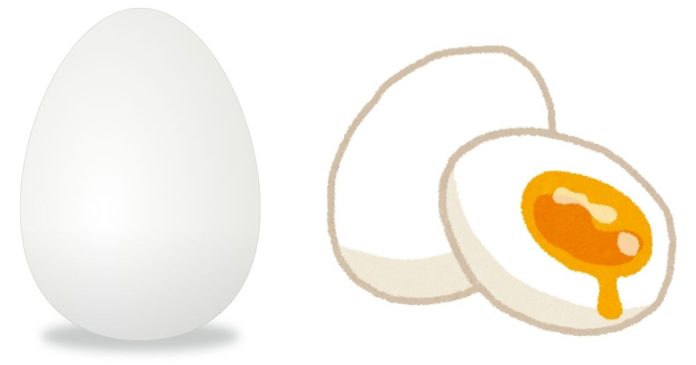Eggs are a common food ingredient in many kitchens, and both the egg white and the egg yolk play important roles in cooking, baking, and even in some scientific applications. While many people are familiar with the difference in taste and texture between the two components, one common question that often arises is: Is egg white stickier than egg yolk?
The answer is yes—egg white is indeed stickier than egg yolk, and this difference in texture and properties is due to the distinct composition of each part of the egg.
Composition of Egg White and Egg Yolk
Egg White (Albumen)
The egg white, also known as albumen, is the clear, viscous liquid that surrounds the egg yolk. It makes up about 60% of the egg’s total weight. The egg white primarily consists of water (about 90%) and proteins (about 10%). The key proteins in egg whites include:
- Ovalbumin: The most abundant protein in egg white.
- Ovotransferrin: A protein that helps in binding iron.
- Ovomucoid: A glycoprotein that plays a role in inhibiting enzymes.
- Lysozyme: An enzyme with antibacterial properties.
These proteins, particularly ovalbumin, give egg whites their sticky and gelatinous texture. When egg whites are beaten, the proteins unfold and form a mesh structure, which traps air, making the egg whites foam up. This ability to trap air makes egg whites perfect for creating meringues, soufflés, and other airy, fluffy foods.
Egg Yolk
The egg yolk is the yellow part of the egg and makes up about 30% of the egg’s total weight. The yolk is rich in fats, proteins, and cholesterol, and it contains more vitamins and minerals than the egg white. The yolk is made up of:
- Lipids (fats): These include lecithin, which is an emulsifier.
- Proteins: There are several proteins, but they are fewer in number compared to egg whites.
- Water: Yolk also contains a significant amount of water.
Unlike egg whites, which are primarily made up of water and proteins, egg yolks have a smoother, thicker consistency, mainly due to their higher fat content. This high-fat composition makes the yolk creamy and less sticky compared to the egg white.
Why Is Egg White Stickier Than Egg Yolk?
The stickiness of egg white can be attributed to its unique protein structure. When you crack an egg, the egg white’s proteins are initially in a globular form. However, when you apply force to the egg white (such as by whisking or heating), the proteins start to unfold and form a network that traps water. This process, known as denaturation, makes the egg whites sticky and gives them a viscous consistency.
The egg yolk, on the other hand, has a different composition. The higher fat content in the yolk results in a more oily, creamy texture. The fats in the yolk prevent the proteins from forming a sticky, water-trapping network in the same way as the egg whites. While egg yolk does have some stickiness, it is primarily due to the emulsifying properties of lecithin, which binds water and oil but does not create the same level of stickiness found in the egg whites.
Practical Applications of Stickiness in Cooking
The stickiness of egg whites makes them ideal for recipes that require the formation of bubbles or foam, such as:
- Meringues: Beaten egg whites form a sticky, stable foam that can be baked into crispy meringues.
- Soufflés: Egg whites help create the airy texture that makes soufflés rise and become light and fluffy.
- Macarons: The sticky nature of egg whites is key to forming the smooth, delicate texture of macaron shells.
In contrast, the egg yolk is often used for its emulsifying properties in recipes such as:
- Mayonnaise: The egg yolk’s lecithin helps bind the oil and water together, creating a smooth, creamy texture.
- Hollandaise sauce: The yolk’s emulsifying properties make it ideal for creating the rich, smooth consistency of this sauce.
- Custards: Egg yolks add richness and creaminess to custard-like desserts.
Yes, egg whites are stickier than egg yolks, and this difference in stickiness is due to the distinct composition of each part of the egg. Egg whites, with their high protein and low fat content, form a sticky, gel-like consistency when beaten or heated, while egg yolks are more creamy and smooth due to their higher fat content. This difference makes each part of the egg ideal for specific culinary applications, from the foamy lightness of meringues to the smooth emulsification in sauces and dressings.


